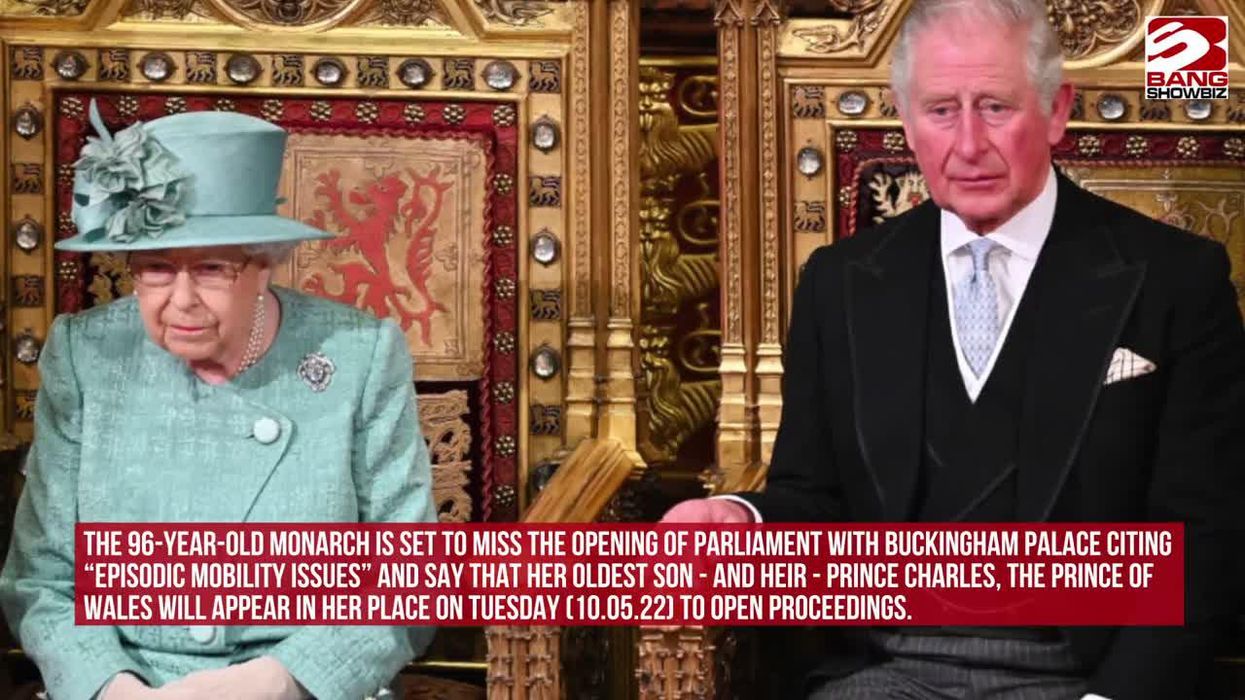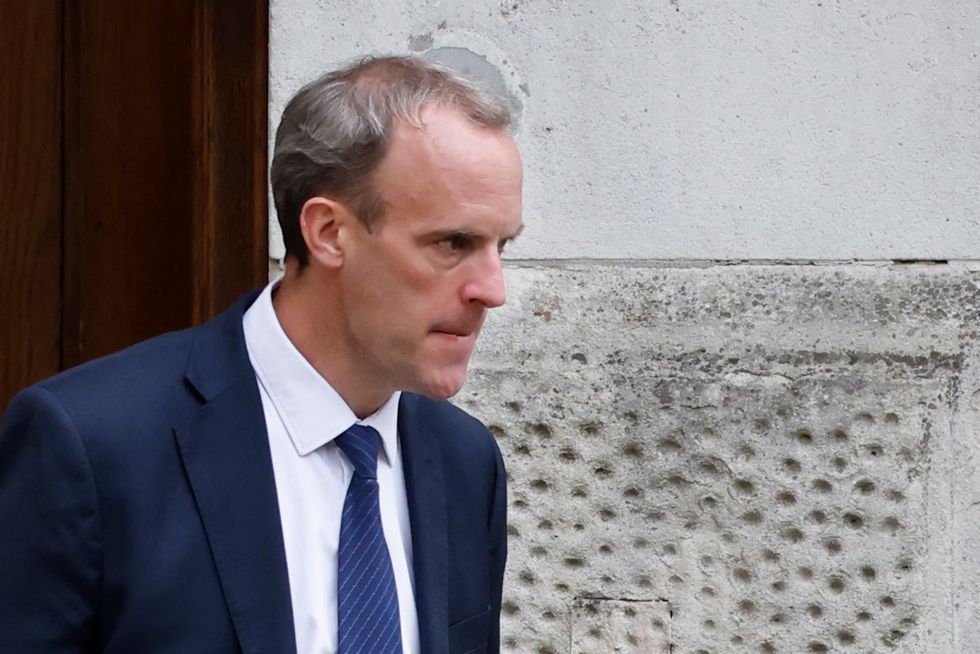Liam O'Dell
May 10, 2022

Related video: Queen Elizabeth II will not attend the State Opening of Parliament
BangShowbiz
Rejoice, for the speech which is normally read by the Queen, but was actually delivered by Prince Charles, but was actually written by Boris Johnson has been unveiled – but what does it all actually mean?
First of all, the speech is part of the wider state opening of parliament – the same ceremony which saw outspoken Labour MP Dennis Skinner slag off the monarchy every year until he lost his seat in the 2019 general election.
Black Rod summons MPs to join peers in the House of Lords to hear a speech from the Queen – or in this case, the Prince of Wales due to the Queen experiencing “episodic mobility problems” - about the legislative proposals being brought forward in that parliamentary year.
A total of 38 parliamentary bills were reported to be revealed in the speech, so what’s in it?
A commitment to “help ease the cost of living for families”
A current economic crisis for homes across the UK, we’d be concerned if this wasn’t mentioned at some point during the speech.
Sign up to our free Indy100 weekly newsletter
A ban on conversion therapy
The ‘therapy’, which aims to change a person’s sexual orientation or gender identity, is something Liz Truss, the women and equalities minister, has described as an “abhorrent practice”.
However, the government said the ban would not extend to cases concerning gender identity.
Boris Johnson said in April: “We will have a ban on gay conversion therapy, which to me is utterly abhorrent, but there are complexities and sensitivities when you move from the area of sexuality to the question of gender.
“There, I’m afraid, there are things that I think still need to be worked out.”
This sparked outcry across the political spectrum, and more than 100 organisations pulled out of the government’s global LGBT+ conference, forcing it to be cancelled.
It has since been confirmed that the upcoming Conversion Therapy Bill will only apply to sexual orientation.
The scrapping of the Human Rights Act

Speaking to LBC last week, Dominic Raab, the justice secretary, said: “I’m proud that we’ve got a judiciary that’s the envy of the world over, but equally, there will always be those that will take advantage.
“But the truth is, the job is on us, the responsibility is on us, and we take that very seriously, to correct the systemic problems.
“Which is why we’re going to replace the Human Rights Act with a Bill of Rights so we’ve got less shifting of the goalposts, less elastic interpretations of human rights, which I think the public finds frustrating in the context of deporting foreign national offenders.”
The Human Rights Act, by the way, enshrines the European Convention on Human Rights into UK law, so no biggie!
Speaking to lords and MPs, Prince Charles said the government would introduce legislation to “restore the balance of power between legislature and the courts through a Bill of Rights”.
A bunch of Brexit bills
The Queen’s Speech said EU “regulations on businesses” will be “repealed and reformed” under new legislation, which would allow such laws to be “more easily amended”.
Elsewhere, it was said the UK government would “prioritise support for the Belfast good Friday agreement and its institutions, including through legislation to address the legacy of the past”, despite fears Liz Truss, the foreign secretary, could ditch the Northern Ireland protocol.
Laws would also be introduced to “enable the implementation of the UK’s first free trade agreements since leaving the European Union”, Prince Charles revealed.
‘Modernising the rail service’
We’re not holding our breath, but it was revealed legislation would be brought forward to ““modernise the rail service and improve reliability for passengers”.
Support for public services
Unsurprisingly, measures for the emergency and security services were unveiled by the Prince of Wales, with the UK government pledging to “continue to support the police to make the streets safer” and “fund the National Health Service to reduce the Covid backdrop”.
The security services will be supported - Prince Charles announced – regulation will be introduced to “reduce economic crime”, the data protection regime will be “reformed” and measures will be brought forward to tackle criminal gangs and Channel crossings – a topic of particular interest to Priti Patel, the home secretary, of course.
New legislation on farming, housing, infrastructure and consumers
Environmental campaigners may be interested in plans for an Energy Bill, which would “deliver the transition to cheaper, cleaner and more secure energy” – apparently.
This was announced alongside plans to “establish the UK Infrastructure Bank in legislation” to help with the “delivery of net zero”, and “unlock the potential of new technologies to ensure efficient farming and food protection”.
As well as this came news of reforms to the planning system; a Bill to “drive local growth, empowering local leaders to regenerate their areas”; and a pledge to “improve the regulation of social housing”.
Oh, and measures to “promote competition, strengthen consumer rights and protect households will be published” – whatever that means.
We imagine this will go hand in hand with “new regulation [which] will strengthen the financial services industry”…
Education reforms
Plans to make “reforms to education, raising standards and improving the quality of schools” follow reports of a Schools Bill, designed to require schools to publish attendance policies and create an education system which “works for every child”.
Reform of the Mental Health Act
Confirmation of draft legislation to reform the Mental Health Act in the Queen’s Speech follows the publication of a white paper on the subject in August 2021, in which the government said they want to legislate to “give people greater control over their treatment, and ensure they are treated with dignity and respect”.
“It also takes forward our commitment to improve how people with a learning disability and autistic people are treated in law and reduce the reliance on specialist inpatient services for this group,” they said.
An “independent regulator of English football”
This comes amid a series of controversies surrounding UK football clubs such as Chelsea (owned by sanctioned Russian oligarch Roman Abramovich) and Saudi Arabia – a country with a terrible human rights record, to put it one way – buying a stake in Newcastle United.
A full list of the draft legislation set to be put forward in this parliamentary session can be found on the GOV.UK website.
Have your say in our news democracy. Click the upvote icon at the top of the page to help raise this article through the indy100 rankings.
Top 100
The Conversation (0)













